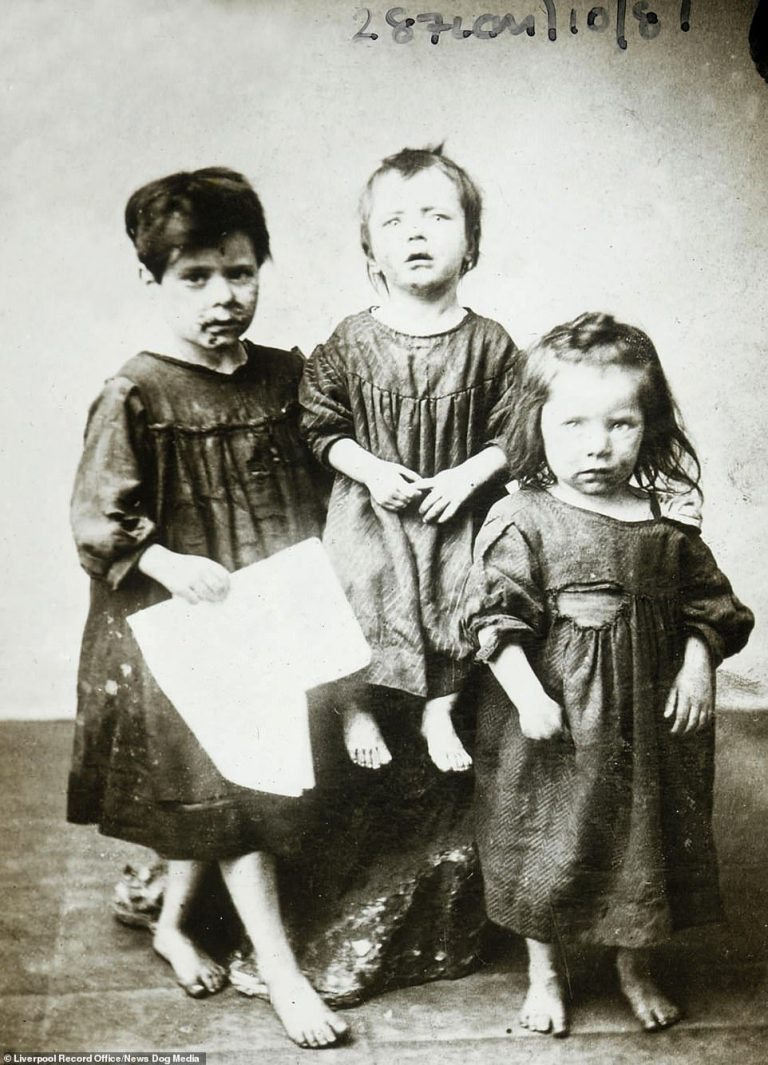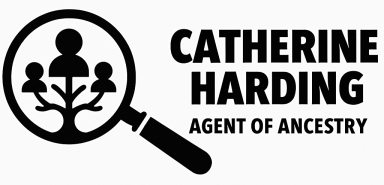
The Great British Empire. We won wars. Took countries. Grabbed shiny things that didn’t belong to us. But was it really that great?
Because back home in my family? Not so much tea and glory - more like blood, sweat, and sore feet. My ancestors weren’t out there running empires. They were too busy running households, digging in mines, serving in the military, pulling pints, or scrubbing someone else’s laundry.
While the Empire was off “civilising” the world, my lot were just trying to keep their shoes from falling apart (assuming they had any). Hungry after dinner? Tough. Walk two miles to school? Tough. Don’t fancy mucking out the pigs or looking after your five younger siblings? Too bad.
Central heating? Nope. Sharing beds? Yep. And as for riches… well, they stayed exactly where you’d expect: with the rich. Funny that.
But here’s the thing - being dirt poor doesn’t mean you don’t have a story worth telling. In fact, those stories are often the most powerful of all. So don’t give up on your poor ancestors… they might not have had gold, but they’ve definitely got grit.
Grit Before Glory

Death certificates are a treasure trove for family historians. They can tell us where our ancestors died, who was with them at the time, and perhaps most intriguingly, what caused their death.
But before we can make sense of that final detail, there are usually two hurdles to overcome. First: deciphering the doctor’s handwriting (no small feat). Second: translating the outdated medical jargon into something we understand today.
One term that crops up more often than you’d expect is phthisis - not a word you’ll hear at your local GP. It’s the old-fashioned name for pulmonary tuberculosis, or TB as we know it. Before antibiotics, TB was often a death sentence. By the 1950s, the UK introduced the BCG vaccine in secondary schools, a programme that ended in 2005 but is still offered to those at higher risk.
Other archaic terms I’ve encountered include:
• Dropsy - now known as edema (fluid retention)
• Wright’s disease - a former term for psoriatic arthritis
• Rodent ulcer of the face - now recognised as basal cell carcinoma, a type of skin cancer.
The image attached shows a fascinating historical record: “The Diseases and Casualties This Year being 1632,” taken from the Bill of Mortality in London. Deaths were recorded by the Company of Parish Clerks, and while some causes still make sense today, others are delightfully obscure.
My personal favourite? King’s Evil - a type of tuberculosis believed to be curable only by the royal touch. Now that’s a diagnosis with flair!
Decoding the Dead

If you know me in real life, you’ll know I’m not one for blowing my own trumpet. Even though I’m a highly experienced genealogist, I’ve always shied away from charging the £20+ hourly rates many others do. Why? Maybe it’s something in my DNA! But ultimately, I’m happy with that choice.
You may come across advice online warning that if someone charges less than the going rate, they’re probably not up to scratch. In my case, that couldn’t be further from the truth.
I genuinely love what I do - uncovering stories, solving mysteries, and helping others connect with their past. And if I can earn a little while doing something I’m passionate about, then that’s a bonus.
As the saying goes, “pay peanuts, get monkeys” - but I like to think that in this case, your “peanuts” are buying you the expertise of a passionate professional who simply chooses to price fairly, not extravagantly.
Always Knowingly Undersold

On The Move
I consider myself lucky that my own family history mirrors many of the trees I’ve researched for others. My DNA reveals a fairly even mix of English, Scottish, Welsh, and Irish ancestry - exactly the backgrounds I most often explore for my clients.
Every so often, an overseas ancestor appears in a client’s tree, bringing with them equal parts excitement and challenge. Why did they leave their homeland and settle in the British Isles? What’s their story? And crucially - can I access the records that help tell it?
History gives us clues. We know about the Huguenots and Walloons who fled religious persecution, but what about ancestors from even further afield?
Sometimes history provides answers. Other times, all we have are educated guesses. Either way, these detours are always fascinating. For me, every lineage is worth exploring - whether you’re the eighth generation living in Haywards Heath, or descended from someone who once called Haiti home. Every family has a story waiting to be uncovered.

Children of Circumstance
There was a time when having a baby outside of marriage could see you cast out of society - especially in places where religion ruled the roost. Take Ireland, for example, which has been in the spotlight recently for the heartbreaking way single mothers and their children were treated, right up until the 1990s.
In my own family history, I’ve found just two “officially” illegitimate ancestors - those without named fathers. But I’ve come across plenty who were born a suspicious five or six months after their parents’ wedding day. And that’s a pattern I see time and time again in nearly every tree I research. Back then, a swift marriage was often arranged to preserve appearances - likely far from the fairy-tale wedding the bride had once imagined as a child.
One recent family tree I worked on revealed an ancestor who had four children outside of marriage over a span of 13 years. In the 1841 census, she’s living with her grandmother and one-year-old daughter. By 1851, she and her first three children were scattered across separate workhouses in South London. It’s heartbreaking to imagine how those early experiences shaped their lives and the generations that followed.
Thankfully, in the UK today, we’ve largely moved past the stigma of illegitimacy. Families come in all shapes and sizes, and there are many reasons why a child might not have both parents on the scene. What matters most now is love, support, and understanding - not outdated ideas about social standing.

Read All About It
As a child, I loved reading newspapers. Local news, home news, foreign news, politics - I had an interest in every aspect of current affairs.
When I started working at The Times in 2006, it was a dream come true. Although I wasn’t a journalist, I brought other skill sets to the table that suited the fast-paced, ever-evolving world of publishing. I was hugely grateful to be part of that environment for nearly a decade.
Since leaving, my interest in current affairs has never waned. But to truly understand the present - and to shape the future - you often have to look to the past.
When the British Newspaper Archive launched in 2011, it opened up new possibilities for my family history research. Suddenly, I could explore forgotten corners of my ancestry in ways I never could before. Through the archives, I’ve uncovered:
• Details of criminal proceedings involving ancestors on both sides of the law
• Clues to the movement of family members through property sales and business notices
• Death announcements of relatives I hadn’t even known existed
Newspapers don’t just report history - they preserve it. They capture the ordinary and extraordinary moments of everyday life. For genealogists, they’re a goldmine.
If you’re researching your own family tree, I can’t recommend newspaper archives highly enough. The stories hiding in those old pages may just change the way you see your past - and yourself.

Surname Sleuthing
I’m a bit of a surname enthusiast—especially when I come across one I’ve never heard before. Did you know that most surnames fall into four main categories?
• Geographical - based on a place (e.g. Ley, Atwood)
• Occupational - based on a job (e.g. Miller, Baker)
• Patronymic - derived from a father’s name (e.g. Benson, Harrison, Jackson)
• Nicknames - based on personality or appearance (e.g. Wise, Short)
Before 1066, surnames simply didn’t exist in England. When William the Conqueror became king after the Battle of Hastings, the population was just 1 to 2 million - so people didn’t really need second names. You might have been known as Edmund of Epping, and if your son had the same name, he’d be Edmund the Younger of Epping. That was enough to tell you apart.
Have you ever looked into your own surname?
Is it rooted in a particular part of the UK?
Does it reflect a long-lost family trade - or even match your appearance today?
Let me know - I’d love to hear!

From Riches to Rags
I’ve always been captivated by history - how it shapes who we are and where we come from. While fiction never really held my interest, give me a history book as a child and I was completely hooked!
Nothing excites me more than tracing a family line back to an ancestor who left their mark on the past. Over the past 20 years, through countless family tree commissions, I’ve uncovered some truly remarkable connections:
• Direct descendants of William the Conqueror
• Lineage tracing back to Henry V
• An ancestor who sat on the panel that sentenced Anne Boleyn
• French and Belgian forebears who fled Huguenot and Walloon persecution in the 16th and 17th centuries
• Irish ancestors who escaped the devastation of the Potato Famine
I’m not driven by wealth or titles - I care about stories. Real stories. The journeys, struggles, and decisions that brought us to where we are today.
